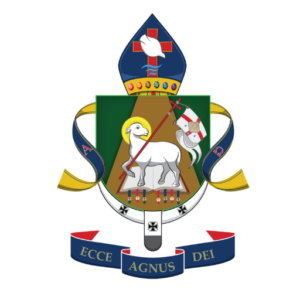God Looks At The Heart
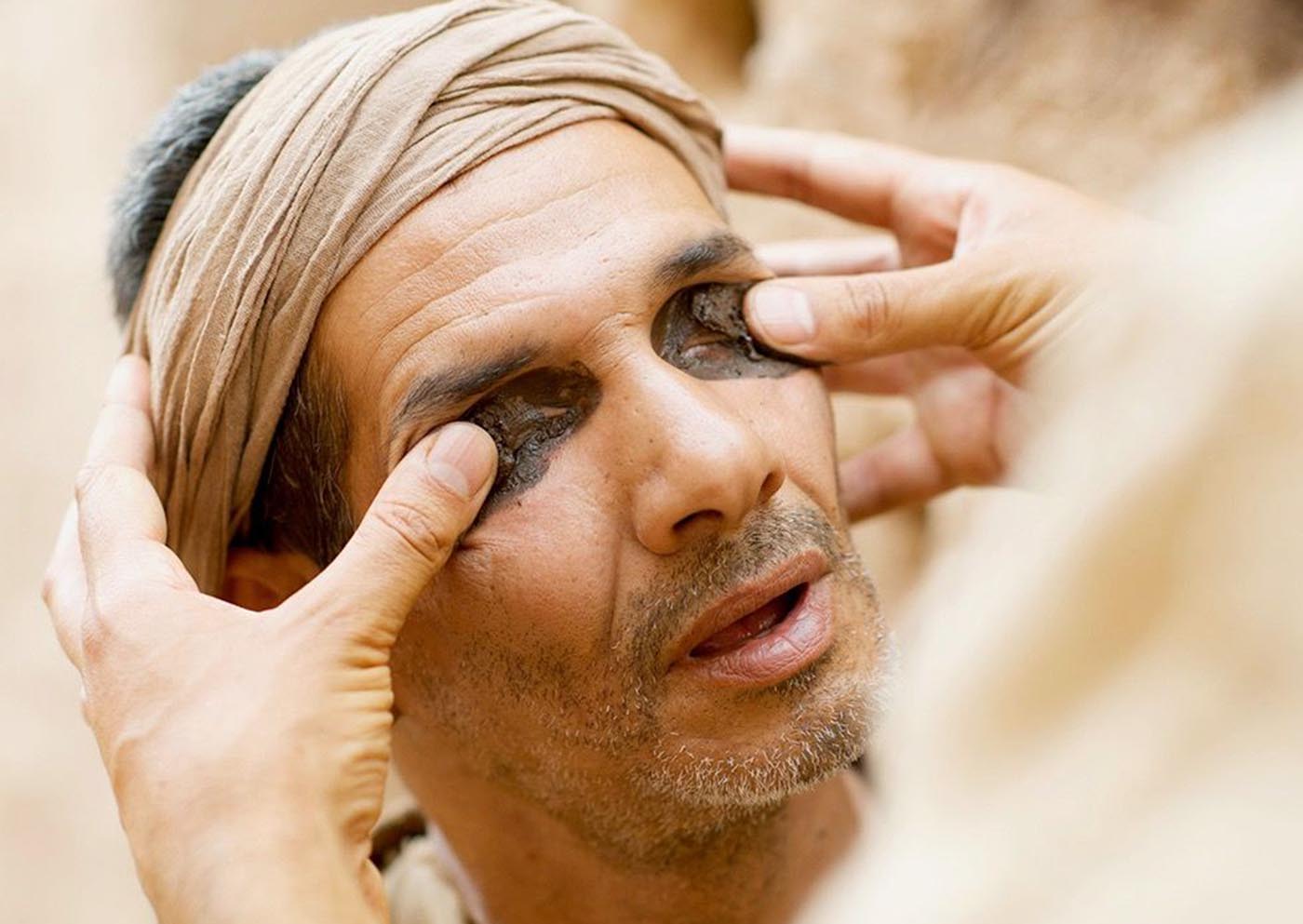
“God Looks At The Heart”
Archbishop Loren Thomas Hines
Fourth Sunday of Lent
March 26, 2017
Readings: 1 Samuel 16:1-13, Psalm 23
Ephesians 5:1-14
John 9:1-13, 28-38
The Scripture we read today seem to be a little strange. God speaks to us in His Word, yet sometimes when we read Scriptures, we don’t fully comprehend what He’s telling us and we don’t get the fullness of His message.
In today’s Gospel, we read about Jesus healing a blind man, restoring his sight. What does this have to do with His crucifixion, with the pain and penalty He paid for our sins? It doesn’t seem to fit, yet it speaks very powerfully as it shows us that the world has been in blindness since the fall of Adam. This blindness has caused man not to comprehend all that God had done for man, and therefore man continues to live in poverty – lacking in the spiritual blessings that God had given man at creation. God is a God of excellence and perfection. He gave of this fullness to man at creation but He also gave man a choice. Man disobeyed God in the Garden, sin entered him and as a result, he became blind. This Gospel, therefore is not just about the blind man but also about all of humanity’s blindness. We still don’t know what God has given us and therefore, this story serves a purpose in preparing us for Easter.
The man in the Gospel was blind form birth, and therefore, no one could help him. When Christ came into this man’s life, it was for a far greater reason than to restore his sight. There were other instances when Christ healed the blind, but this is a special case because he was blind from birth. The message the Lord is giving us is that humanity as a whole was blind from birth and walk in darkness because of the sin of Adam. Scriptures talk about us being in darkness and then being brought to light. Notice how Christ handled the situation. He was the one who saw the blind man, not His disciples. His attention was drawn to the blind man of His own volition. In other words, Christ chose the blind man. He used the dust of the earth and His own spit to make clay, then applied the clay to the man’s eyes. Why did Jesus use dust? In Genesis we read that man was made from dust. The original creation failed because of sin, so Christ re-established man’s connection to how he was originally created by God by applying dirt to the blind man’s eyes. Everything came from dust, but we lost contact with our origins, and Christ had to come to restore this. After applying the dust on the blind man’s eyes, Jesus asked him to go to the pool of Siloam to wash his eyes. Siloam is translated as “Sent”. Christ was sent by God, and in this instance, the Lord sent the blind man to the pool so he could wash his eyes. As he was cleansed, his sight was restored. The pool of Siloam and the washing of the dirt are symbolic of baptism. This tells us that at baptism, the things that blind us and hinder us from being able to see and know the provision of God are washed away. Before this incident, Jesus was telling His disciples that He is the light of the world, that He brings the light back into our lives. Therefore there is no reason for us not to see what He has done for us and given us, if we’ve been baptized and cleansed. Our blindness has been healed. In later writings, the disciples spoke of the mystery that has been hidden for generations but has now been made known to us because we can now see. The blindness has been taken away and God now restores into our lives His holiness, blamelessness and righteousness, all of which He gave us in creation. Christ chose the blind man, the same way that He chose us. This story speaks to us of the hope coming to us at Easter – that we’re no longer in darkness but able to see God’s provision for our lives. A spiritual healing took place here, not just a restoration of the physical sight.
The Pharisees didn’t like what happened and I believe they were jealous of what the Lord did because they couldn’t do it themselves. They questioned the man: “Who did this? Where is He?” The man whose sight was restored replied, “I don’t know”, and then he “preached” to them: “We know that God does not hear sinners; but if anyone is God-fearing and does His will, He hears him. Since the beginning of time it has never been heard that anyone opened the eyes of a person born blind. If this man were not from God, He could do nothing”. The blind man has a message for us: what God restores is complete in Christ – everything pertaining to life and godliness.
It’s amazing that today’s Psalm is Psalm 23. “The Lord is my Shepherd, I shall not want.” Why do we still become anxious when God tells us that we shall not want? He will supply our wants. Do we want to know Him and His plan for our lives? Psalm 23 sets a pattern for our lives and it should be deeply entrenched in us. “He makes me lie down in green pasture; He leads me beside quiet waters.” We don’t see many green pastures in the Philippines, but in Ireland there are massive green pastures where sheep graze. This is what God promises man, His heart for us – the beauty of green pastures and the peacefulness of still waters. “He restores my soul.” This is what Easter does; it restores our soul. “He guides me in the paths of righteousness for His name’s sake.” Epiphany tells us that God is with us, and maybe we take it for granted that He is with us. But the bigger truth is not “God in us” but “us in God”. He is with us means we don’t go our own way, doing whatever we want. He is with us only if we go with Him. There should be unity, a oneness with God. “I in Him and He in me.” He leads us; we follow Him. We don’t lead Him. “Even though I walk through the valley of the shadow of death, I fear no evil for Thou art with me; Thy rod and Thy staff, they comfort me.” God won’t desert us in the valley; we go through the valley and not get caught in the middle of it. God protects us as we go through the valleys of life; we have nothing to fear. “Thou dost prepare a table before me in the presence of my enemies. Thou hast anointed my head with oil, my cup overflows.” This doesn’t mean material things but the joy of the Lord and we shouldn’t allow anything to take away that joy. This is what Easter brings to us. This was prophetically written by David long before Easter. David had a foreknowing of who God is.
The Old Testament reading is about the anointing of David as king. Saul had failed and God rejected him from being king over Israel. Samuel liked Saul and was grieving over him. Saul was tall and handsome, the image of strength that would give people confidence, but God told Samuel that he was looking at the outward appearance. God looks at what’s inside; He sees the heart. We live in a society where people what to have the image of perfection, so they go to cosmetic surgeons. The outward appearance is deceptive; it doesn’t reveal the heart of a person. Men value physical appearance in choosing a wife; they want perfection. But the physical appearance can be deceptive. Look at Hollywood where marriages don’t last.
God asked Samuel to fill his horn with oil and go to Bethlehem to anoint a new king. Today when we anoint a bishop, we only use a little oil. The fullness of the horn with oil is symbolic of the fullness of God’s life and power in a person. In Exodus, the instructions for preparing oil for anointing a man of God involve a very intricate and expensive formula. When Samuel anointed David, he poured on David a whole horn of oil. The oil completely covered David, from the top of his head to the soles of his feet. This symbolized the fullness of what God was giving him. Samuel was afraid to anoint a new king because Saul might kill him. God told him to forget about Saul because He has chosen a new king. This speaks to us of Christ being chosen by the Father to bring new life to all of mankind. All of Scriptures are set in patterns that are repeated over and over again – God makes the choice. God chose David; He chose Jesus and He chose us. This is the way God works. We don’t choose Him but submit to Him. He has already chosen us. We’re not the one in control. He chose us. There’s the realm of submission, but it’s not a matter of choice for us because He already chose us, like He chose David. Ephesians tells us that God chose us before the foundation of the world to be established in righteousness and blamelessness. This is our destiny. We can reject it but it doesn’t change the truth that Christ has finished the work.
When Samuel saw Eliab, he was sure that Eliab was God’s anointed because he was tall and handsome, but God said, “Do not look at his appearance….because I have rejected him; for God sees not as a man sees, for man looks at the outward appearance, but the Lord looks at the heart”. God rejected the seven sons of Jesse even if they were handsome and tall, so Samuel asked Jesse if he had another son, to which he replied, “Yes, but he’s tending sheep”. The least of the children is always given the task of tending sheep because the work didn’t require a lot of training. David was the least of the sons. He was the shortest, he was rugged because he lived in the field, and he was dark because of the sun. Yet God chose him because God saw that his heart was right. Samuel anointed him with the horn of oil in the midst of his brothers. Christ came through the lineage of David. The kingdom of God was established through David, he who in the eyes of his family was a nobody. Jesse didn’t even think of calling David, but God chose David because of the righteousness of his heart – protecting the sheep from wild animals, giving of himself for the sheep. This speaks to us about Lent – God chose Christ to redeem His chosen ones.
In talking about the outside appearance, I remind us that we walk by faith, not by sight. The heart is all that matters. The beauty of a person comes from what’s inside – compassion, mercy and love. Ephesians 5 tells us to be imitators of God. This may be difficult for us to do. Can you form the moon and the sun; the stars? God’s character is shown in us, not by the “great” things we accomplish, but by the way we live our lives. Imitate God. Walk in love, love that comes out of compassion, forgiveness, restoration, helping and thinking of others rather than self. This is the attitude God wants us to have so we can conquer the world, as Christ conquered the world by giving of Himself. We don’t hold people in bondage, but we give them of ourselves out of our hearts.
Christ was willing to go to the cross to suffer the pain and humiliation for us. Are we willing to do the same for others? This is our task: to work the works of Him who gave His life for us. In whatever we do, we do it so that it brings glory and praise to God. “Let no one deceive you with empty words, for because of these things the wrath of God comes upon the sons of disobedience” (Ephesians 5:6). This is what happens when we walk outside of God’s will and provision. We were built to be like God, created in His image and likeness. If we don’t live that way, we’ll have problems in our body and in the world around us. The world is in the state it’s in because we’re not living our lives the way God meant for them to be lived. “You were formerly darkness, but now you are Light in the Lord; walk as children of Light….” (Ephesians 5:8-9). Christ is the light of the world and we are to walk in that light. “The fruit of the Light consists in all goodness and righteousness and truth.” We are to worship God in spirit and truth. Truth is who God is. We’re on a journey through life and if we are to complete this journey, we must walk on the path of Christ, in a manner pleasing to Him – in grace, mercy, forgiveness and joy. This 4th Sunday of Lent is helping us get to that point where we understand why Christ went through the sufferings – to restore us to what God intended us to be in the beginning. Christ is restoring us to what He created us to be at creation. He could’ve chosen a simpler way of healing the blind man, but he used mud to show us that He wants creation restored to its original state and receive the fullness of what He gave man in the beginning. Christ came to restore this to us. Restoration begins in the heart.
As we complete the 4th Sunday of Lent, this is another challenge to us: to walk in faith and obedience in order to bring forth God’s glory and honor. What He created in the beginning was perfect and we won’t reach perfection any other way but through Christ. Beauty is what’s on the inside. Our goal is to live with the beautiful heart that God gave us.
Recent Sermons
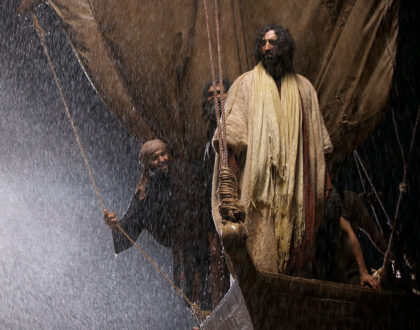
Jesus, Calmer Of Storms
June 23, 2024
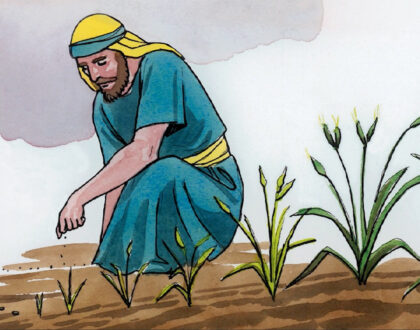
Harvest Time Stemming From The Smallest Seed
June 17, 2024
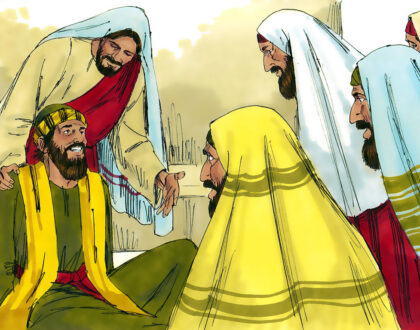
Not Bound By Limitations To Minister
June 10, 2024

